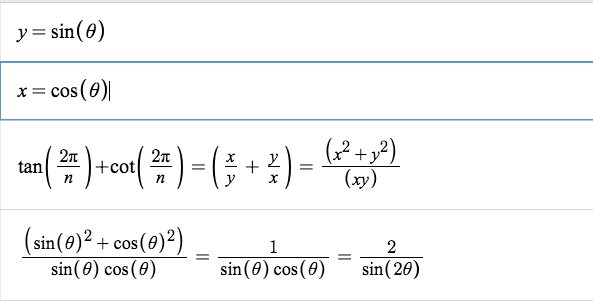True Polynomial Hunting
True or False
Any number of the form , where is an integer, is algebraic by nature.
Details
- An algebraic number is any number which can be a root for some nonzero polynomial with rational coefficients.
This section requires Javascript.
You are seeing this because something didn't load right. We suggest you, (a) try
refreshing the page, (b) enabling javascript if it is disabled on your browser and,
finally, (c)
loading the
non-javascript version of this page
. We're sorry about the hassle.
This was my approach: The tan and the cot can be expressed as ratios of s i n ( A ) and c o s ( A ) . When summing, for some angle A = n 2 π , t a n ( A ) + c o t ( A ) = s i n ( 2 A 1 . Since s i n ( 2 A ) 2 can be irrational and cannot always be expressed as operations with radicals, the polynomial that has s i n ( 2 A ) 2 as a root does not always have a conjugate for all possible values of A . If it does have a conjugate, the coefficients would be rational as the radicals would cancel out. As a result, the polynomial does not always have rational coefficients, so t a n ( A ) + c o t ( A ) is not always algebraic.
My work: